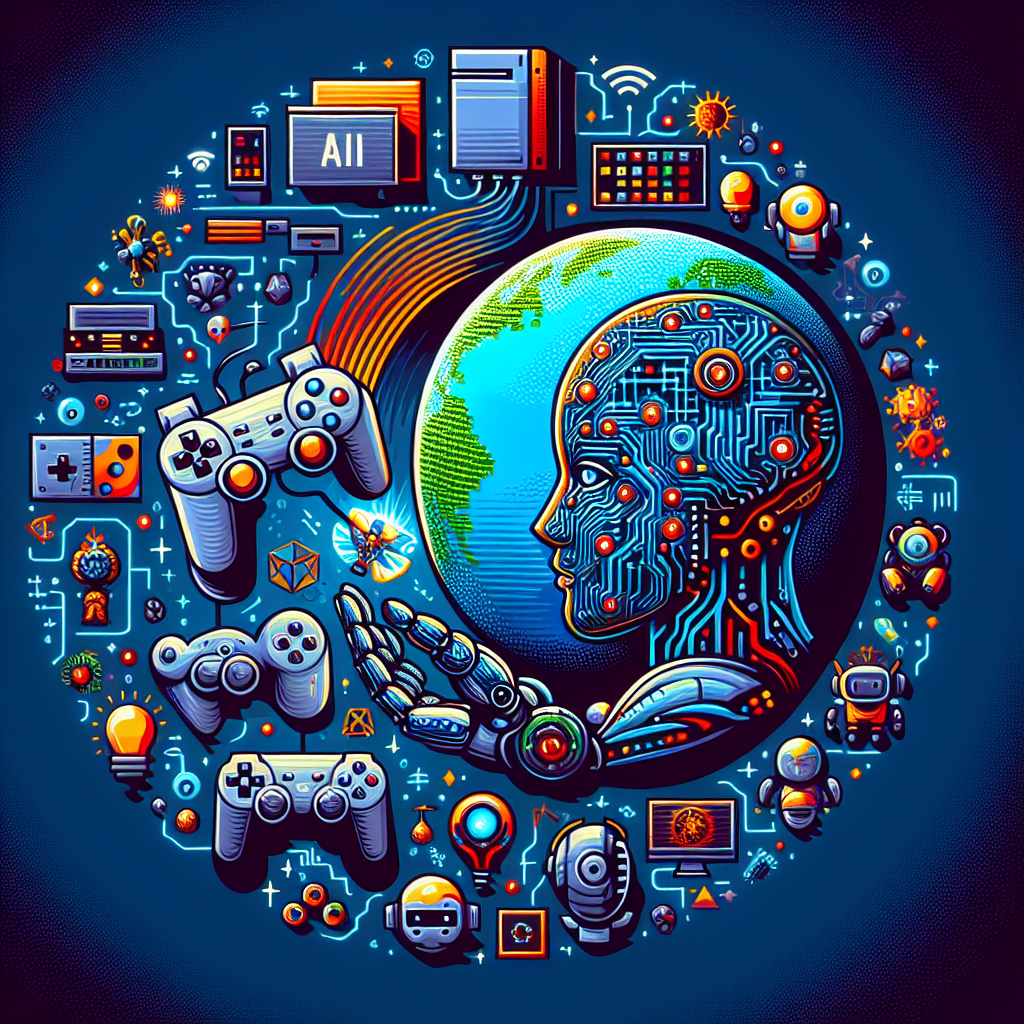Artificial intelligence (AI) has been revolutionizing the gaming industry in recent years, particularly in the creation of dynamic game worlds. With AI technology becoming more advanced and sophisticated, game developers are now able to create immersive and realistic virtual environments that adapt and evolve based on the actions and decisions of players.
AI-powered game worlds offer a level of complexity and interactivity that was previously impossible to achieve with traditional programming methods. These virtual worlds can respond to player behavior in real-time, creating a more personalized and engaging gaming experience. From dynamic weather systems to intelligent non-player characters (NPCs) that learn and adapt to player strategies, AI has opened up a whole new world of possibilities for game developers.
One of the key ways in which AI is used to create dynamic game worlds is through procedural generation. Procedural generation is a technique in which algorithms are used to generate content such as terrain, levels, and objects in a game world. By using AI to procedurally generate content, developers can create vast and diverse virtual worlds that are unique to each player’s experience.
For example, in the game No Man’s Sky, AI algorithms are used to generate an entire universe of planets, each with its own unique landscapes, flora, and fauna. As players explore the game world, the AI dynamically generates new planets and creatures, ensuring that no two players have the same experience.
AI is also used to create dynamic and responsive NPCs that can interact with players in more realistic and engaging ways. In traditional games, NPCs are often limited to pre-programmed behaviors and responses, making them feel predictable and scripted. With AI, NPCs can be given the ability to learn and adapt to player actions, making them more challenging and lifelike.
For example, in the game Middle-earth: Shadow of Mordor, the AI system known as the Nemesis system creates dynamic rivalries between the player and enemy NPCs. As players defeat or spare certain enemies, the AI tracks these interactions and adjusts the behavior of NPCs accordingly. This creates a more immersive and personalized gaming experience, as players must contend with the consequences of their actions.
AI is also being used to create more dynamic and realistic environments in games. For example, in the game Red Dead Redemption 2, AI algorithms are used to simulate realistic weather patterns and environmental effects. The game world responds dynamically to changes in weather, with NPCs reacting differently to rain, snow, or other weather conditions.
AI is also being used to create more dynamic and challenging gameplay experiences. In the game Alien: Isolation, the AI system controlling the alien antagonist adapts to player behavior, learning and evolving over time to become more unpredictable and terrifying. This creates a sense of tension and suspense that keeps players on their toes throughout the game.
Overall, AI is revolutionizing the gaming industry by enabling the creation of dynamic and immersive game worlds that respond to player actions in real-time. As AI technology continues to advance, we can expect to see even more sophisticated and interactive gaming experiences in the future.
FAQs:
Q: How does AI technology impact the gaming industry?
A: AI technology has revolutionized the gaming industry by enabling the creation of more immersive and dynamic game worlds. AI-powered systems can generate content, create intelligent NPCs, and simulate realistic environments, leading to more engaging and personalized gaming experiences.
Q: What are some examples of AI-powered games?
A: Some examples of AI-powered games include No Man’s Sky, Middle-earth: Shadow of Mordor, Red Dead Redemption 2, and Alien: Isolation. These games use AI algorithms to create dynamic game worlds, intelligent NPCs, and challenging gameplay experiences.
Q: How does AI technology enhance player immersion in games?
A: AI technology enhances player immersion in games by creating more realistic and interactive virtual worlds. AI-powered systems can adapt and respond to player actions, creating a sense of agency and personalization in the gaming experience.
Q: What are some challenges and limitations of using AI in game development?
A: Some challenges and limitations of using AI in game development include the need for specialized expertise, the potential for bias in AI algorithms, and the computational resources required to run AI-powered systems. Additionally, AI systems may not always behave as intended, leading to unexpected outcomes in gameplay.

